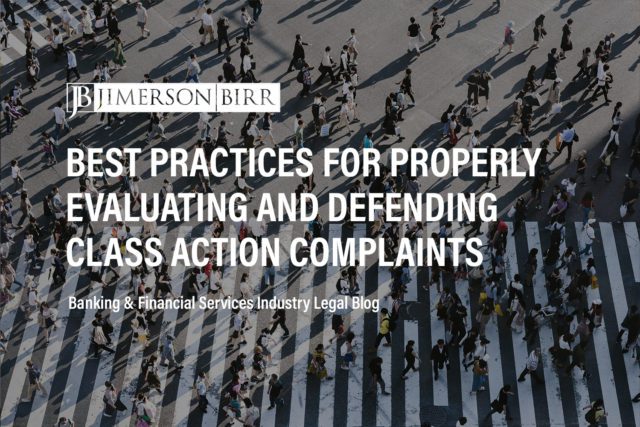What do interlocutory appeals of class certification entail?
Filing interlocutory appeals of federal and state court class certifications involves challenging a court’s ruling on class certification before a final judgment. In Florida, as well as in federal courts, interlocutory appeals are available under specific circumstances. These appeals are essential tools for defendants seeking to contest class certification decisions that may significantly impact the course of litigation.
Need help to challenge a class certification on appeal? Schedule your consultation today with a top class action defense attorney.
In Florida, which laws and regulations apply to interlocutory appeals of class certification?
In Florida, Rule 9.130 of the Florida Rules of Appellate Procedure governs interlocutory appeals of non-final orders, which include class certification determinations. Specifically, Rule 9.130(a)(3)(C)(v) allows for the appeal of non-final orders that determine the right to immediate monetary relief, the entitlement to a class action, or the entitlement to an immediate appeal.
Rule 23(f) of the Federal Rules of Civil Procedure provides the basis for interlocutory appeals of class certification determinations at the federal level. Under Rule 23(f), parties may petition for permission to appeal an order granting or denying class certification within ten days of the order. The appellate court has discretion in deciding whether to accept the appeal. Florida and federal rules emphasize the importance of timely filing and the discretionary nature of interlocutory appeals in class action litigation.
What are the strategic benefits of filing interlocutory appeals of class certification?
Filing interlocutory appeals of federal and state court class certifications offers the following strategic benefits:
- Early resolution of critical issues: By appealing the class certification decision, defendants can potentially resolve critical issues earlier, avoiding lengthy and costly litigation if the appeal is successful.
- Preservation of resources: A successful interlocutory appeal can save the defendant time and money by preventing unnecessary discovery, trial preparation, and other litigation expenses related to defending a class action.
- Potential for settlement leverage: A successful interlocutory appeal may weaken the plaintiff’s position and increase the defendant’s leverage in settlement negotiations. It demonstrates the defendant’s willingness to contest the class certification and may lead to a more favorable outcome for the defense.
- Clarification of legal standards: Interlocutory appeals can help clarify the legal standards applicable to class certification, guiding defendants and courts in future cases.
- Deterrence of frivolous class actions: A well-crafted interlocutory appeal can deter plaintiffs from pursuing frivolous class actions because they may be more hesitant to file if they are aware that defendants are prepared to challenge class certification.
- Development of favorable precedent: A successful interlocutory appeal may result in a favorable precedent that benefits defendants in similar cases, potentially discouraging plaintiffs from pursuing class actions with similar legal issues.
What steps should a class action defendant take to file an interlocutory appeal, and how will class action plaintiffs generally respond?
Class action defendants should follow these steps:
- Review the class certification order and identify the grounds for appeal, focusing on legal errors, factual misinterpretations, or procedural issues.
- Confirm that the relevant appellate court has jurisdiction over the interlocutory appeal, as not all jurisdictions permit such appeals.
- File a timely petition for permission to appeal under Rule 23(f) for federal cases or the equivalent state rule for state cases, typically within the required time after the court enters a class certification order.
- Prepare a well-reasoned and persuasive brief that articulates the errors in the class certification order and demonstrates the importance of the issues presented for appellate review.
- If the appeal is granted, participate in oral arguments and submit any additional briefs required by the appellate court.
In response to a class action defendant’s filing of interlocutory appeals, class action plaintiffs may:
- Oppose the petition for permission to appeal, arguing that the class certification order is correct and that the appellate court should not grant review.
- If the appeal is granted, submit their briefs defending the class certification order and addressing the issues raised by the defendant.
- Participate in oral arguments and submit any additional briefs the appellate court requires.
Legal defenses against interlocutory appeals of federal and state court class certifications include the following:
- Lack of jurisdiction: Arguing that the appellate court lacks jurisdiction over the interlocutory appeal because the applicable rules do not permit such appeals or the appeal is untimely filed.
- Mootness: Asserting that the appeal is moot because the class certification issue has been resolved or the case has been settled.
- Failure to demonstrate importance: Claiming that the defendant has not shown that the issues presented in the appeal are sufficiently important to warrant interlocutory review.
- Harmless error: Contending that any errors in the class certification order do not affect the overall outcome of the case and, therefore, should not be the basis for granting an interlocutory appeal.
When a set of facts is appropriate to meet the requirements of filing interlocutory appeals of class certification, there are many paths a claimant may take. We are value-based attorneys at Jimerson Birr, which means we look at each action with our clients from the point of view of costs and benefits while reducing liability. Then, based on our client’s objectives, we chart a path to seek appropriate remedies.
To determine whether a unique situation may necessitate litigation, please contact our office to set up your initial consultation.
Frequently Asked Questions
- Can a class action defendant appeal the denial of a motion to decertify a class?
Yes, a class action defendant may appeal the denial of a motion to decertify a class. However, like appealing a class certification order, the defendant must file a timely petition for permission to appeal and demonstrate the importance of the issues presented for appellate review.
2. What is the standard of review for interlocutory appeals of class certification determinations?
The standard of review for interlocutory appeals of class certification determinations varies depending on the jurisdiction and the issues presented. Generally, appellate courts review legal issues de novo, factual findings for clear error, and procedural issues for abuse of discretion.
3. How does an interlocutory appeal impact the progress of the underlying class action litigation?
Filing an interlocutory appeal may temporarily stay the underlying class action litigation, depending on the jurisdiction and the case’s specific circumstances. In some instances, the trial court may proceed with the litigation while the appeal is pending, subject to any limitations imposed by the appellate court.
Have more questions about an interlocutory appeal-related situation?
Crucially, this overview of filing interlocutory appeals of class certification does not begin to cover all the laws implicated by this issue or the factors that may compel the application of such laws. Every case is unique, and the laws can produce different outcomes depending on the individual circumstances.
Jimerson Birr attorneys guide our clients to help make informed decisions while ensuring their rights are respected and protected. Our lawyers are highly trained and experienced in the nuances of the law, so they can accurately interpret statutes and case law and holistically prepare individuals or companies for their legal endeavors. Through this intense personal investment and advocacy, our lawyers will help resolve the issue’s complicated legal problems efficiently and effectively.
Having a Jimerson Birr attorney on your side means securing a team of seasoned, multi-dimensional, cross-functional legal professionals. Whether it is a transaction, an operational issue, a regulatory challenge, or a contested legal predicament that may require court intervention, we remain a tireless advocate every step of the way. Being a value-added law firm means putting the client at the forefront of everything we do. We use our experience to help our clients navigate even the most complex problems and come out the other side triumphant.
If you want to understand your case, the merits of your claim or defense, potential monetary awards, or the amount of exposure you face, you should speak with a qualified Jimerson Birr lawyer. Our experienced team of attorneys is here to help. Call Jimerson Birr at (904) 389-0050 or use the contact form to schedule a consultation.

We live by our 7 Superior Service Commitments
- Conferring Client-Defined Value
- Efficient and Cost-Effective
- Accessibility
- Delivering an Experience While Delivering Results
- Meaningful and Enduring Partnership
- Exceptional Communication Based Upon Listening
- Accountability to Goals










